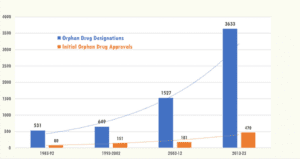Car buyers in Germany losing price protection as inflation there is over 10%

Inflation in Germany is running higher than inflation in America, the German Federal Statistics Office putting October median year-on-year inflation at 10.4%. Carmakers there are among the industries taking steps to be more flexible with pricing in order to protect margins. As spotted by Carscoops, German outlet Automobilwoche reports brands including BMW, Kia, Mercedes, and Volkswagen are writing sales contracts that guarantee pricing for a short, fixed time. With the luxury makers, if the confirmed delivery date comes four months or more after the sale date, the price of the car will be adjusted to match the latest list price on the eventual delivery date — assuming the price has gone up. Kia gives seven months. Volkswagen won’t change the price if it can give the buyer a confirmed delivery date at the time of the sale. If VW can’t promise a delivery date, there’s no protection for any length of time.
We need to note some details of European car buying that, until recently, were much different than in the U.S. First, carmakers own a lot of their dealerships in Europe instead of using franchise dealers as in the U.S. Stellantis reworked its European dealer network last year following the merger that created the company. In May of this year, Mercedes said it intended to shutter 15%-20% of its dealerships in Germany and roughly 10% around the world, an effort that would turn into massive litigation and costs in the U.S. were it attempted. Also, Europeans typically order their cars and wait from six weeks to a few months to take delivery. Until a few years ago, American didn’t consider ordering cars standard operating procedure the way we do now. But here and in Europe, delivery times have ballooned because so many necessary industrial functions are out of order. This eats into the margins of all manufacturers everywhere; according to data from Inflation.eu, a car ordered in Germany in April would be more than 5% more expensive come October.
So the inflation-fighting measures in Germany are being put in place by the carmakers, not the dealers. We wouldn’t be surprised to see an automaker make the attempt here, now that so many vehicles are ordered and delivery times stretch into years. The four-door Ford Bronco is about $3,000 more expensive now than when it debuted in 2020, and Bronco forums still get threads about buyers who ordered in 2020 waiting for their vehicles two years later. Ford’s price protection locks in the purchase price in most situations, but Ford eats the change in materials costs when it finally delivers a 2023 Bronco SUV sold at a 2020 price. Meanwhile, the franchise system here insulates U.S. dealers from such changes, and dealers are taking additional liberties with massive market adjustments and mandatory add-ons, two market features that haven’t landed in Europe yet like they have here.
Back to Europe, Automobilwoche said the only option for an unhappy customer is to walk away from the car, a step that can come with its own penalty. Mercedes will only void the contract if the updated price is more than 3% above the agreed purchase price.
So far, most German lending arms are holding the line, refusing to follow rising interest rates. However, BMW’s bank said it will adjust lease figures for cars that take longer than 12 months to deliver.



